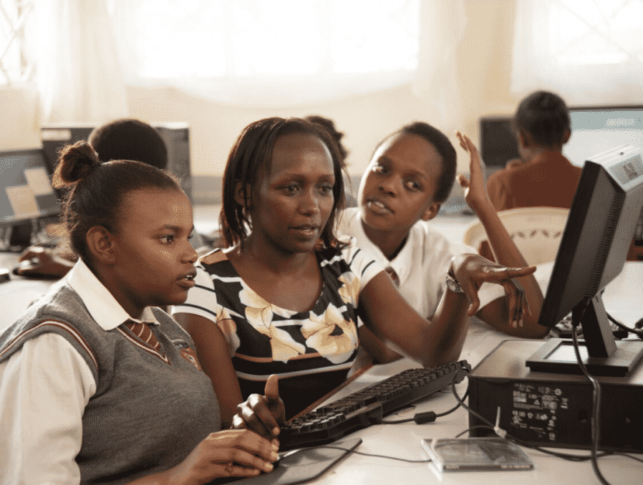In the fields of science, technology, engineering and mathematics (STEM), women are widely underrepresented in both further education and professional roles. This issue is even more pronounced in developing nations, where an increase in female representation, within these areas, could help break cycles of poverty, and offer the next generation role models that help foster long-term change.
However, there are projects that are already addressing this, and in several African countries high-school girls are learning coding skills that could help change both their futures and those of women across developing nations.
Coding for a new tomorrow
In a world in which social media and smartphone apps are ubiquitous aspects of the developed world, coding has become a huge area of employment and invention. In the developing world, cellphone technology is widespread, and the proliferation of smartphone technology is spreading.
However, for girls and women in countries like Kenya, long standing ideas around gender combine with widespread poverty to make the internet age inaccessible for many of them. In the slums of Kenya’s capital, Nairobi, only 20% of women have internet access, compared with 57% of men.
This situation not only holds back women, but the country at large, as STEM employment opportunities spread best when there is a large base of potential talent. The current imbalance may well begin to change, as several organizations are now helping to provide tech education to girls in Kenya, Uganda and Senegal.
The charity, Theirworld, is running “Code clubs” across these three nations, in which schoolgirls can learn a variety of skills within STEM fields, something that can help alter ideas about education, while providing the girls in question with new skillsets.
Theirworld launched the first code club in conjunction with Kano Code Academy and Africa Gathering, and they had funding from Facebook. Theirworld President, Sarah Brown, explained, “With a safe space to learn and play, a mentor to inspire, and access to technology…we can increase learning opportunities, and empower girls to fulfill their potential.”
Before International Women’s Day, Theirworld launched a social media campaign with the title #RewritingTheCode, which aimed to raise awareness about the problems facing girls around the world within STEM fields and education at large.
Even more promisingly, this is not the only organization that has looked to provide females with educational support within Africa, and there are already success stories that show how beneficial such provisions could become.
From Kenya to beyond
In Kenya, one group of schoolgirls took advantage of another program supporting girls in STEM fields, and found themselves as finalists in a global competition for schoolgirls in technology. Kenyan cellphone company, Safaricom, operates a scheme that provides technology education to girls, along with access to mentors who help them build upon their new skills.
Harriet Karanja is only 16 years old, but with support from Safaricom’s scheme, she created an app with friends called M-Safiri, which means “traveler” in Swahili. The app allows users to buy bus tickets remotely, and then get GPS guidance to the bus-stop of your choice, without having to wait on the street.
Karanja and her friends made the finals of a global competition, held in San-Francisco, a huge achievement for them, but also a glowing endorsement of the project.
While it is admirable that charities such as Theirworld are helping females access the STEM world in Africa, it is even more encouraging that domestic tech giants like Safaricom are recognizing the need for change, and the wealth of talent that they can help foster. The American company, Intel, has also funded mentor schemes in Kenya, and Kenya’s already blossoming tech scene looks set to finally make use of all of its young talents, rather than losing 50% of its potential due to gender discrimination.
If Kenya can lead the way, then the projects in Uganda and Senegal can surely follow in their success, and bodies like Theirworld already plan on expanding into another 3 African nations by the end of the year. Marieme Jamme, Co-Founder of Africa Gathering, said “Africa is crying out for young women with STEM skills and knowledge.” Hopefully the changes occurring will ensure that what Africa is crying out for, will soon be something that Africa gets.

